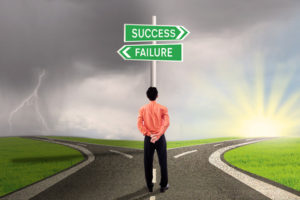Why are there poor people in a rich country like the United States? People generally answer that question in one of two ways. Some would say that people are poor in the United States primarily because of “systemic” causes. The economic system benefits the rich, they argue, and the political, educational, criminal justice and other systems perpetuate that inequality by giving power to the haves and keeping power from the have-nots. Generally, the poor are poor because of those systemic forces that are outside of their control.
Others would say that people are poor primarily because of their own decisions in life. They would argue that if someone gets an education, plans ahead, and works hard, he won’t be poor. Generally, the poor are poor because of things within their control.
Liberals tend to favor the “systemic” explanation of poverty, that the economic, political and other systems determine the outcomes of people’s lives. Consequently, liberals look to government for solutions. Change those systems, they argue, and we solve the problem of poverty.
Conservatives tend to favor the “personal choices” argument, that individual decisions by and large determine one’s life path. Consequently, conservatives think government intervention to counter “systemic forces” is a waste of time and money. (Worse, by burdening businesses and discouraging individual initiative, government involvement tends to stifle economic growth and to promote dependency.)
While both sides have valid points, the facts support the “individual choices” explanation. According to studies by the Brookings Institution, avoiding poverty can be accomplished by doing 3 things:
1. Graduate from high school.
2. Don’t get married until at least age 21, and don’t have a child until married.
3. Have a full time job
That’s it. A strikingly short to-do list of “social norms” to follow. Notice the list does not include “Change the economic system” or “Be born into a rich family” and even “Graduate from a four-year college.”
Yet those who do these 3 things have only about a 2% chance of living in poverty, and a better than 70% chance of being at least in the middle class. Conversely, those who violate all those rules have a 76% chance of living in poverty. This “success sequence” gives an individual the power virtually to guarantee he will avoid living in poverty.
Liber als are correct that there are many obstacles facing the poor: Lack of money and resources; living in impoverished neighborhoods with high crime, few jobs, and troubled schools; crumbling infrastructure; limited access to groceries and other services. Living in poverty is stressful, and can do harm, especially to children. Liberals are also correct that government can help alleviate the damage with a social safety net of housing supplements, food stamps, and other welfare assistance.
als are correct that there are many obstacles facing the poor: Lack of money and resources; living in impoverished neighborhoods with high crime, few jobs, and troubled schools; crumbling infrastructure; limited access to groceries and other services. Living in poverty is stressful, and can do harm, especially to children. Liberals are also correct that government can help alleviate the damage with a social safety net of housing supplements, food stamps, and other welfare assistance.
But how to move people out of poverty? That should be the ultimate goal. And that is where liberals falter. To avoid appearing to “blame the victim,” too many hide behind the sympathetic cover of blaming “the system.” But the objective should be guiding people out of poverty, not saying agreeable things.
It is not “blaming the victim” to identify the connection between poverty and bad decisions. Should we let poor people know how to avoid poverty? Or should it be kept a secret? Some people were taught how to swim, and some people were not. If it’s time to swim to the other side of the river, and the non-swimmers are left standing on the riverbank, it is not “blaming” them to offer to teach them how to swim. The poor are in need of knowledge, the knowledge of how to avoid staying poor.
Government cannot be a substitute for that individual action. Changing lives will involve teaching poor children how to go about successful living. How might that be done? It would start, probably, with parents reading to their kids, and insisting on excellence in school. Turning off the TV. Encouraging good habits and behavior.
The liberal narrative of “the system” may actually be part of the problem. Instead of telling those in poverty that their choices matter, liberals are preaching the opposite, that their lives are controlled by outside forces. That explanation is ultimately defeatist and negative. Perhaps turning off that corrosive message would be a start to helping the poor toward a better life.